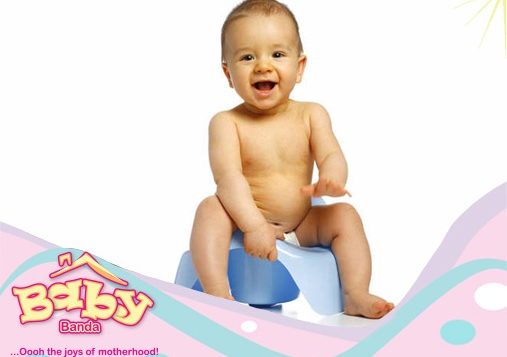Right from the start, decide what you are going to name the process.
In Kenya, some of the common names given are ‘pee-pee, susu, kojoa, go-potty, wee-wee, poo-poo’ etc. It should be simple for your baby to articulate so that they can understand and communicate when they need to.
Treat the process as a normal part of life to avoid instilling feelings of shame to your baby.
Here are other tips to help toilet train your little one.
• Prepare yourself. Take time off work; prepare yourself psychologically so that you will ready to be patient through the ‘accidents’ that will likely occur. If possible, plan to devote at least 3 to 4 days to begin toilet training.
• Ensure that there are no other events happening at this time for instance a new baby, or moving house.
• Purchase a potty. Try and get one that is simple and not too fancy so that your baby does not think that it’s a toy.
• You can start by guiding your baby to sit on the potty for a few moments without the diaper so that she starts becoming familiar with it. Place it in a suitable place that is easy to reach.
• If your baby has been waking up dry after a nap, remove the diaper immediately and place them on the potty. You can turn your tap to let the water run. The sound of the running water will trigger the urine to flow. If your baby passes urine, you can offer a lot of praise and encouragement.
• Increase liquids and high fibre in the diet thus increasing the need to go to the bathroom.
• Introduce bathroom manners, like washing hands after potty, flushing etc.
• Decrease discomfort or fear of sitting on the toilet by providing footrests for stabilization and a toilet seat insert.
• Dress your baby in clothing that is easy to undress.
• You can buy your baby a book that illustrates the toilet process.
• Give positive reinforcements whenever your child is successful, e.g. if they like taking a walk, take them, or put a star on their forehead, lots of hugs and kisses, etc.
• Relax whenever your baby has an ‘accident’. Do not reprimand or shame the baby. Clean up without comment so that your baby does not become fearful or afraid of the process.
• Give frequent prompts to remind your baby every so often about using the potty when he feels the urge to urinate. Once your child starts to remember to use the potty most of the time, you need not give reminders as often.
• Wipe your child carefully. Wipe girls from front to back to prevent infection. Teach your child to always wash hands with soap and water after using the potty.
• For boys, you can teach them to use the potty first and then transition to emptying the bladder when standing later.
• If things don’t seem to be working, postpone the potty training for a few weeks and try again.













